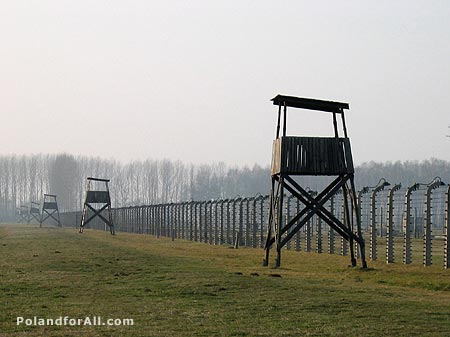
The Jewish prisoners begin the process of selection. Eliezer and his father are still together, but his mother and sister are separated. Another prisoner talks them into lying about their age, a word wisely taken. He also mentions that they are at Auschwitz to be killed; the young prisoners consider rebelling but the older ones tell them to rely on faith. Dr. Mengele is the one to determine arrivals. Both Eliezer and his father are sent to be workers.
Uncertainty is still spreading through the Jewish captives (they did not know at the time that they were being sent to work). While they are moving through the camp, they see pits where adults and babies are burned. No one can believe what they are seeing. Everyone breaks down and starts to weep. They start to recite the Kaddish, except for Eliezer, who doesn’t fully understand why God is being thanked.
They enter the barracks, are shaved, disinfected, showered, and clothed. A Nazi German gives them a briefing, and Eliezer’s father asks for a bathroom. He is brutally beaten by the head prisoner, and Eliezer blames himself for not standing up for him. They march to Auschwitz, where they live for a little bit and have their arms branded. Their relative informs them that his family is doing well. They learn that this is not true. Then they are escorted to Buna, the work camp. Their faith in God is still strong.
Eliezer’s doubt starts to form and accumulate during the chapter in the Auschwitz camp. It’s a subtle change, but a change none-the-less. He questions why the prisoners are thanking God (when they were walking by the adults and babies being burned). However, this is directly contrasting the beliefs of the other prisoners, who keep a strong faith throughout. Not only does he doubt God, but he doubts himself. His own faith in mankind. The Kapo beats his father, while Eliezer just watches. His silence makes him possess a feeling of guilt, and results in an almost beat down of his morality. According the Wiesel, silence in the wake of evil allows it to thrive.
Uncertainty is still spreading through the Jewish captives (they did not know at the time that they were being sent to work). While they are moving through the camp, they see pits where adults and babies are burned. No one can believe what they are seeing. Everyone breaks down and starts to weep. They start to recite the Kaddish, except for Eliezer, who doesn’t fully understand why God is being thanked.
They enter the barracks, are shaved, disinfected, showered, and clothed. A Nazi German gives them a briefing, and Eliezer’s father asks for a bathroom. He is brutally beaten by the head prisoner, and Eliezer blames himself for not standing up for him. They march to Auschwitz, where they live for a little bit and have their arms branded. Their relative informs them that his family is doing well. They learn that this is not true. Then they are escorted to Buna, the work camp. Their faith in God is still strong.
Eliezer’s doubt starts to form and accumulate during the chapter in the Auschwitz camp. It’s a subtle change, but a change none-the-less. He questions why the prisoners are thanking God (when they were walking by the adults and babies being burned). However, this is directly contrasting the beliefs of the other prisoners, who keep a strong faith throughout. Not only does he doubt God, but he doubts himself. His own faith in mankind. The Kapo beats his father, while Eliezer just watches. His silence makes him possess a feeling of guilt, and results in an almost beat down of his morality. According the Wiesel, silence in the wake of evil allows it to thrive.
The night was gone. The morning star was shining in the sky. I too had become a completely different person. The student of the Talmud, the child that I was, had become consumed in the flames. There remained only a shape that looked like me. A dark flame had entered into my soul and devoured it
I did not deny God's existence, but i doubted His absolute justice
3 comments:
This is really good summary. You could add something that you think about. Like your feelings, or something you know about history to it.
I agree with what Mears is saying (which doesn't happen that often). You did an excellent job summarizing the chapter. But I, too, feel you could have included a little bit more of a personal exposition. Nice work on the picture though.
Good job on the summary I thought it was really thorough. I also like the fact that you used quotes from the book in accordance to MLA standards. Good pictures too.
Post a Comment